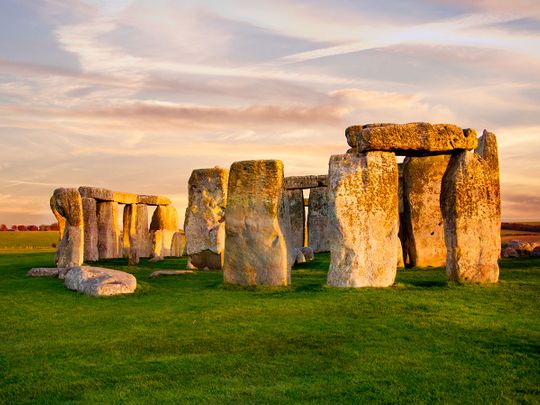
In July this year, the UK’s city of Liverpool was stripped of its coveted World Heritage status, becoming only the third place to lose its status in nearly 50 years. Could the Stonehenge be next?
Click start to play today’s Crossword, which celebrates some of the UK’s 33 World Heritage Sites. How many can you identify?
The United Nations Educational, Scientific and Cultural Organisation (Unesco) delisted Liverpool with the reason that years of development had caused “irreversible loss” to the historic value of its Victorian docks. New buildings, including Everton football club’s swanky new stadium, along Liverpool’s waterfront unfortunately destroyed the area’s “outstanding universal value”, thus ending its World Heritage status - something the city has enjoyed since 2004.
The Stonehenge, a prehistoric monument in England’s Wiltshire county, could be next in line to lose its cherished status. According to a July 2021 report by UK-based news website The Guardian, Unesco has informed ministers in the county that the enigmatic stone circle will be placed on its “in danger” list – which is considered to be the precursor to it losing its World Heritage status – if a £1.7 billion (Dh8.66 billion) road tunnel is built in the area as planned.
Other sites in the country are also under the scanner of the UN’s heritage body. Edinburgh’s new and old towns, the Tower of London and Cornwall’s historic mining area all have ongoing developments that are controversial and likely to raise concerns, according to The Guardian report.
For countries around the world, having their monuments and historic sites listed in Unesco’s World Heritage List is a huge boon. The tag often brings worldwide recognition, tourist revenue and access to international funding and expertise. The process to be inscribed on the World Heritage List takes years – some sites have waited 25 years to be named – and the locations must have outstanding universal value and meet at least one of ten selection criteria, such as “areas of exceptional natural beauty” or areas that represent “a masterpiece of human creative genius”.
But Unesco’s World Heritage Centre makes it clear that countries have to do their part to protect the sites and neutralise any threats to it – this includes agreeing not to materially alter sites.
Play today’s Crossword and let us know if you have visited any of UK’s World Heritage Sites at games@gulfnews.com.







